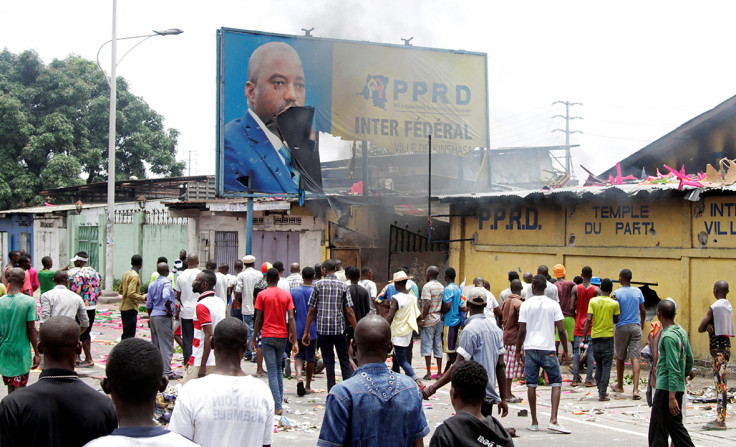EU sanctions seven DRC security officials responsible for deadly violence
US follows suit by imposing sanctions on two officials.
The EU has imposed sanctions against seven top security officials from the Democratic Republic of Congo (DRC).
The move on Monday (12 December) is in response to extreme acts of repression taken against protesters in September 2016. At least 50 people were killed in "acts that constitute serious human rights violations" as they took part in protests against President Joseph Kabila.
Kabila has ruled Africa's largest copper producer since 2001, when his father was assassinated. He won elections in 2006 and 2011 and is required to step down from power on 19 December, when his mandate expires. Under the DRC's constitution, presidents can only serve a maximum of two terms.
Elections were scheduled to take place last month, but were not organised. Kabila has been accused of trying to cling to power.
The central African giant has never experienced a peaceful transition of power and Kabila faces allegations of engineering artificial delays in the election process to stay in office. The opposition has called for huge protests on 19 December.
Those targeted by the sanctions include:
- Commander of the Republican Guard (GR), Ilunga Kampete. He was said to be "involved in planning, directing, or committing acts that constitute serious human rights violations in DRC".
- Commander of the first defence zone of Congolese Army (FARDC), Gabriel Amisi Kumba. Grounds for sanctions against him are the same as Kampete's.
- Commander of the anti-riot body Légion Nationale d'Intervention of the Congolese National Police (PNC), Ferdinand Ilunga Luyoyo. Grounds for sanctions against him are the same as Kampete's.
- Kinshasa Police Commissioner (PNC), Celestin Kanyama. Grounds for sanctions against him are the same as Kampete's.
- Former Inspector-General of the Congolese National Police (PNC), John Numbi. He was found to be "responsible for obstructing a consensual and peaceful solution towards elections in DRC".
- Director of the National Intelligence Service (ANR), Roger Kibelisa. He faced the action after undermining "the rule of law and obstructed a consensual and peaceful solution towards elections in DRC".
- Head of Military Intelligence Body (ex-DEMIAP), Delphin Kaimbi. He is "responsible for forces that participated in intimidation and arbitrary arrests, which obstructs a consensual and peaceful solution towards elections in DRC".

The action from the EU against the top officials include asset freezes and travel restrictions. As the DRC teeters on the brink of a political crisis, the bloc has vowed to monitor "the crucial political developments taking place in the DRC during the coming weeks with increased attention. In this context, additional restrictive measures may be considered in the event of further violence or the political process being impeded."
Reacting to the imposition of sanctions against those responsible for violence, Ida Sawyer, senior researcher at Human Rights Watch, said: "The EU's strong action shows grave concern about the direction Congo is heading, and the real risk that the country could descend into large-scale violence in the coming weeks.
"Senior officials should act now to end repressive measures, and President Kabila should make a public commitment to the constitution and announce he will step down," she added.
According to AFP news agency, the DRC government said sanctions against the officials are "illegal". Government spokesman Lambert Mende was quoted as saying: "[These sanctions] are illegal because they are a sort of imperial law that is at odds with international law. The DRC, a non-European country, condemns them and intends to take action against them."
#BREAKING EU sanctions against DR Congo officials are 'illegal': govt
— AFP Africa (@AFPAfrica) December 12, 2016
In addition to the action taken by the EU on Monday, the US Treasury sanctioned two senior DRC government officials "for engaging in actions or policies that undermine democratic processes or institutions." They are Deputy Prime Minister Evariste Boshab and General Administrator of the National Intelligence Agency, Kalev Mutondo.
"The Congolese government continues to undermine democratic processes in the DRC and repress the political rights and freedoms of the Congolese people, putting the long-term stability and prosperity of the country at risk," said Adam Szubin, Acting Under Secretary for Terrorism and Financial Intelligence at the US Department of the Treasury.
"Today's designation is intended to alter the behaviour of the targeted individuals with the aim of fostering a better and more stable future for the DRC and the Congolese people," added Szubin.
© Copyright IBTimes 2024. All rights reserved.






